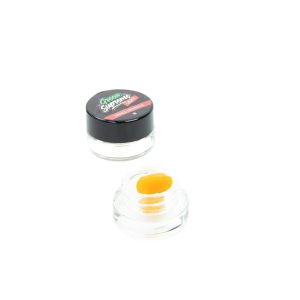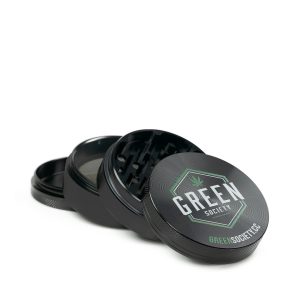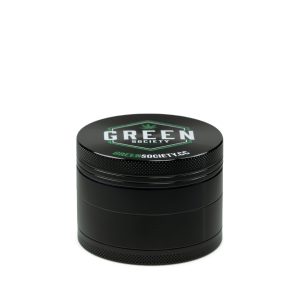Marijuana
Can CBD Oil Improve Sleep? A Closer Look at Its Effects on Insomnia
Introduction
For many Canadians, insomnia and sleep disturbances are all too common. The quest for a good night’s sleep often leads people to explore various remedies, with CBD oil emerging as a popular natural option. But can CBD oil truly improve sleep, and how does it impact insomnia? This article takes a closer look at the role of CBD oil in promoting better sleep, reducing insomnia symptoms, and addressing common questions surrounding its use.
How Does CBD Oil Affect Sleep?
CBD, or cannabidiol, is a compound found in the cannabis plant that has gained attention for its potential therapeutic effects, including its impact on sleep. Unlike THC, another compound in cannabis, CBD does not produce a “high.” Instead, it interacts with the endocannabinoid system (ECS) in the body, which plays a crucial role in regulating various functions, including sleep, mood, and pain.
The Science Behind CBD and Sleep
Research suggests that CBD may help improve sleep by addressing some of the underlying causes of insomnia, such as anxiety, chronic pain, and stress . CBD’s interaction with the ECS can help regulate the body’s sleep-wake cycle, making it easier to fall asleep and stay asleep throughout the night. Additionally, CBD has been shown to reduce the amount of REM sleep, which is when dreams occur. This reduction may benefit those who suffer from nightmares or other sleep disturbances.
CBD Oil and Insomnia: What the Research Says
Insomnia is a sleep disorder characterized by difficulty falling or staying asleep. It can be acute (short-term) or chronic (long-term), and it often has a significant impact on overall health and well-being.
Can CBD Oil Reduce Insomnia Symptoms?
Several studies have explored the potential of CBD oil in reducing insomnia symptoms. A 2019 study published in The Permanente Journal found that CBD improved sleep scores in 66% of patients within the first month of use . The study also noted that CBD was well tolerated, with few side effects reported.
Another study, published in the National Institutes of Health database, indicated that CBD could reduce anxiety, which is a common contributor to insomnia . By alleviating anxiety, CBD may help create a more conducive environment for sleep.
How CBD Promotes Better Sleep
CBD oil may help improve sleep quality by addressing several factors:
- Anxiety Reduction: CBD has anxiolytic (anxiety-reducing) properties that can help calm the mind, making it easier to fall asleep.
- Pain Relief: Chronic pain is a significant barrier to sleep. CBD’s anti-inflammatory and analgesic properties may help reduce pain, allowing for more restful sleep.
- Relaxation: CBD can promote relaxation by interacting with receptors in the brain that regulate mood and stress levels.
What Are the Side Effects of CBD Oil for Sleep?
While CBD oil is generally considered safe, it is essential to be aware of potential side effects, especially when using it for sleep.
Common Side Effects
Some of the most commonly reported side effects of CBD oil include:
- Dry Mouth: CBD can reduce saliva production, leading to a dry mouth sensation.
- Dizziness: Some users may experience light-headedness or dizziness, particularly when taking higher doses.
- Changes in Appetite: CBD may increase or decrease appetite, depending on the individual.
- Diarrhea: Gastrointestinal issues like diarrhea can occur, especially in those new to CBD.
Is CBD Safe for Long-Term Use?
CBD is generally well tolerated, even with long-term use. However, it is crucial to start with a low dose and gradually increase it as needed. Consulting with a healthcare provider before beginning any new supplement regimen is always a good idea, particularly for those with underlying health conditions or those taking other medications.
Is It Okay to Take CBD Every Night?
Many people wonder if it is safe to use CBD oil every night to help with sleep. The short answer is yes, but with some considerations.
Developing a Routine
CBD is non-addictive, and using it consistently as part of a nightly routine may help regulate sleep patterns over time. However, it is advisable to monitor how your body responds and adjust the dosage as needed. Some individuals may find that they only need CBD on certain nights, while others may benefit from nightly use.
Long-Term Effects
Currently, there is no conclusive evidence to suggest that taking CBD every night poses significant risks. However, as with any supplement, it is essential to be mindful of your body’s response and make adjustments as necessary. Regularly consulting with a healthcare professional can help ensure that CBD remains an effective and safe part of your sleep routine.
How Much CBD is Good for Insomnia?
Determining the right dosage of CBD for insomnia can be challenging, as it varies from person to person. Factors such as body weight, metabolism, and the severity of insomnia all play a role in determining the appropriate dose.
General Dosage Guidelines
For those new to CBD, starting with a low dose—typically between 10-20 mg of CBD per day—is recommended. From there, you can gradually increase the dosage until you find the amount that works best for you. Some individuals with severe insomnia may require higher doses, ranging from 40-160 mg per day.
Microdosing for Sleep
Another approach to using CBD for sleep is microdosing, which involves taking small amounts of CBD throughout the day rather than a single large dose. This method can help maintain steady levels of CBD in the body, promoting overall balance and potentially improving sleep quality.
Does CBD Help Sleep Disturbance?
Sleep disturbances can manifest in various ways, from difficulty falling asleep to waking up frequently during the night. CBD may offer relief for these issues by addressing the underlying causes.
Addressing Sleep Disturbances
CBD’s ability to reduce anxiety, alleviate pain, and promote relaxation makes it a versatile tool for tackling various sleep disturbances. For instance, individuals who wake up frequently due to pain may find that CBD’s analgesic properties help them stay asleep longer. Similarly, those who struggle with anxiety-induced insomnia may benefit from CBD’s calming effects.
Personalized Approach to Sleep
As with any sleep aid, it is essential to take a personalized approach when using CBD. What works for one person may not work for another, so it may take some experimentation to find the most effective dosage and timing for your specific needs.
Conclusion
CBD oil shows promise as a natural remedy for improving sleep and reducing insomnia symptoms. Its ability to address anxiety, pain, and stress—all common contributors to sleep disturbances—makes it a valuable option for those struggling with sleep issues. While more research is needed to fully understand CBD’s impact on sleep, current studies and anecdotal evidence suggest that it can be an effective part of a holistic approach to better sleep.
As with any supplement, it is important to use CBD oil responsibly. Starting with a low dose, monitoring your body’s response, and consulting with a healthcare provider can help you find the right balance for your needs. Whether you’re looking to reduce occasional sleep disturbances or manage chronic insomnia, CBD oil may offer a natural path to a more restful night’s sleep.
References:
- Shannon S, Lewis N, Lee H, Hughes S. Cannabidiol in Anxiety and Sleep: A Large Case Series. Perm J. 2019;23:18-41. https://www.ncbi.nlm.nih.gov/pmc/articles/PMC8116407/















